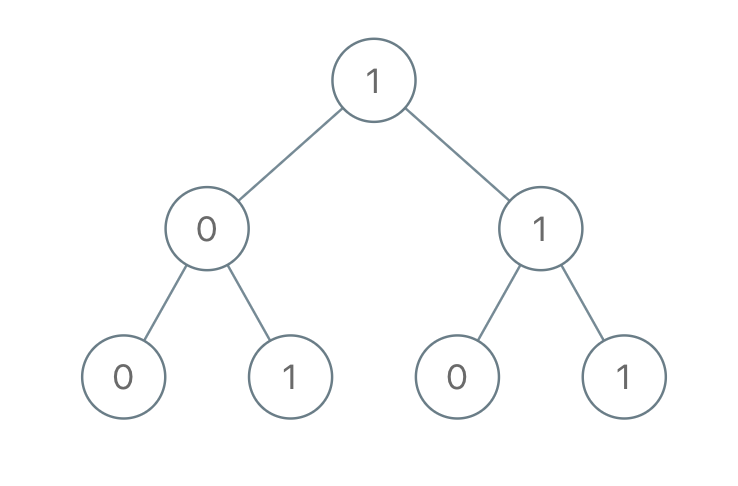Sum of Root To Leaf Binary Numbers
Problem Statement - link #
You are given the root of a binary tree where each node has a value 0 or 1. Each root-to-leaf path represents a binary number starting with the most significant bit.
- For example, if the path is
0 -> 1 -> 1 -> 0 -> 1, then this could represent01101in binary, which is13.
For all leaves in the tree, consider the numbers represented by the path from the root to that leaf. Return the sum of these numbers.
The test cases are generated so that the answer fits in a 32-bits integer.
Examples #
Example 1:

Input: root = [1,0,1,0,1,0,1]
Output: 22
Explanation: (100) + (101) + (110) + (111) = 4 + 5 + 6 + 7 = 22
Example 2:
Input: root = [0]
Output: 0
Constraints #
- The number of nodes in the tree is in the range
[1, 1000] Node.valis0or1
Solutions #
/**
* Definition for a binary tree node.
* struct TreeNode {
* int val;
* TreeNode *left;
* TreeNode *right;
* TreeNode() : val(0), left(nullptr), right(nullptr) {}
* TreeNode(int x) : val(x), left(nullptr), right(nullptr) {}
* TreeNode(int x, TreeNode *left, TreeNode *right) : val(x), left(left), right(right) {}
* };
*/
class Solution {
public:
int rootToLeaf = 0;
void preorder(TreeNode *r, int currNumber) {
if (r != NULL) {
currNumber = (currNumber << 1) | r->val;
if (r->left == NULL && r->right == NULL) {
rootToLeaf += currNumber;
}
preorder(r->left, currNumber);
preorder(r->right, currNumber);
}
}
int sumRootToLeaf(TreeNode* root) {
preorder(root, 0);
return rootToLeaf;
}
};